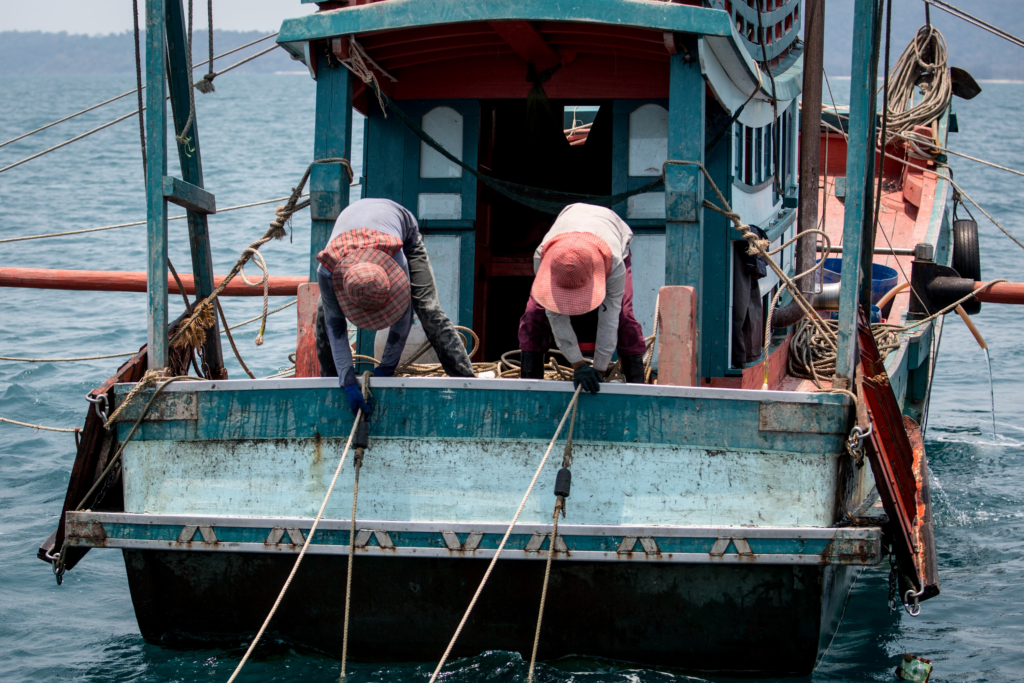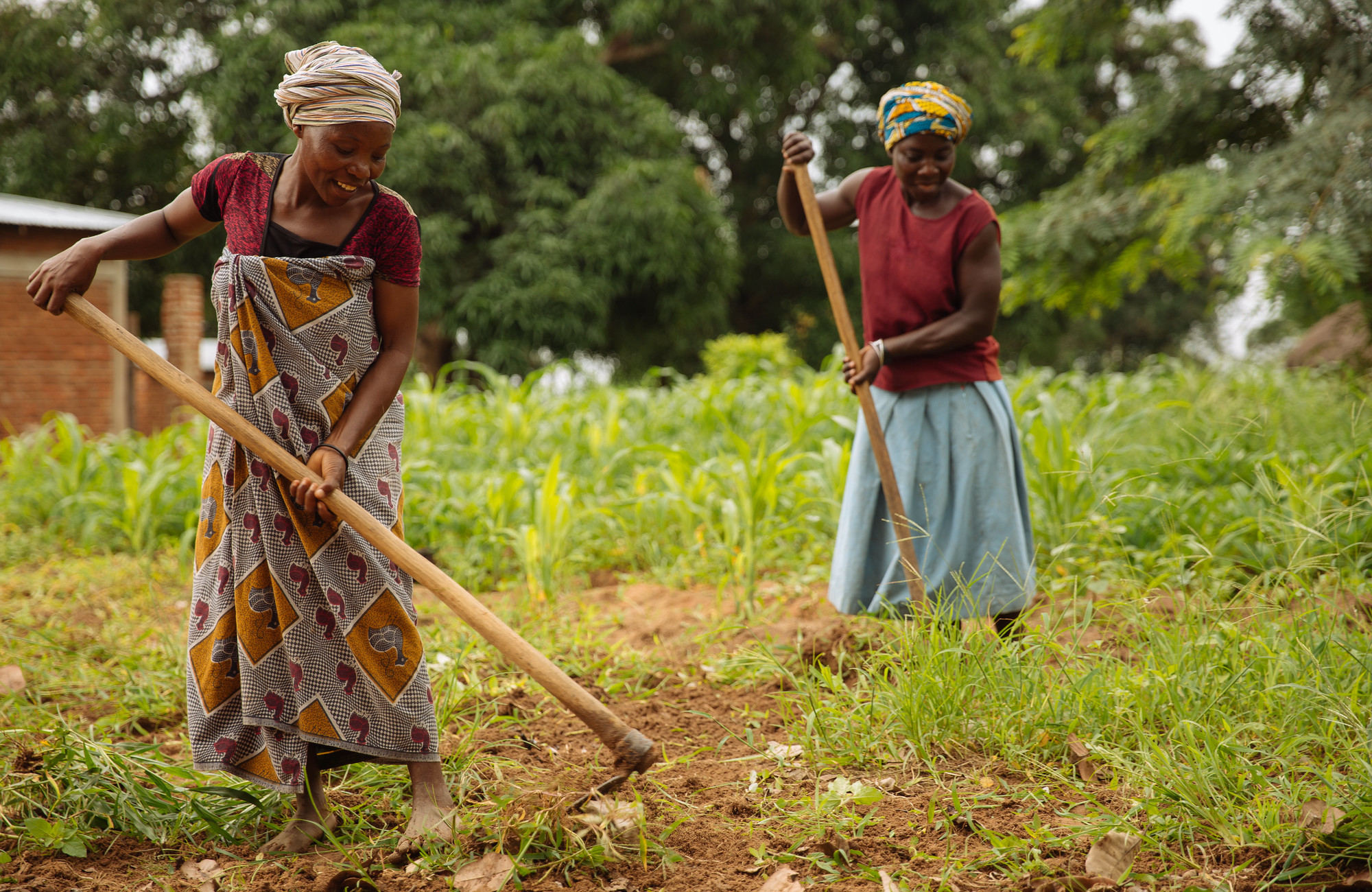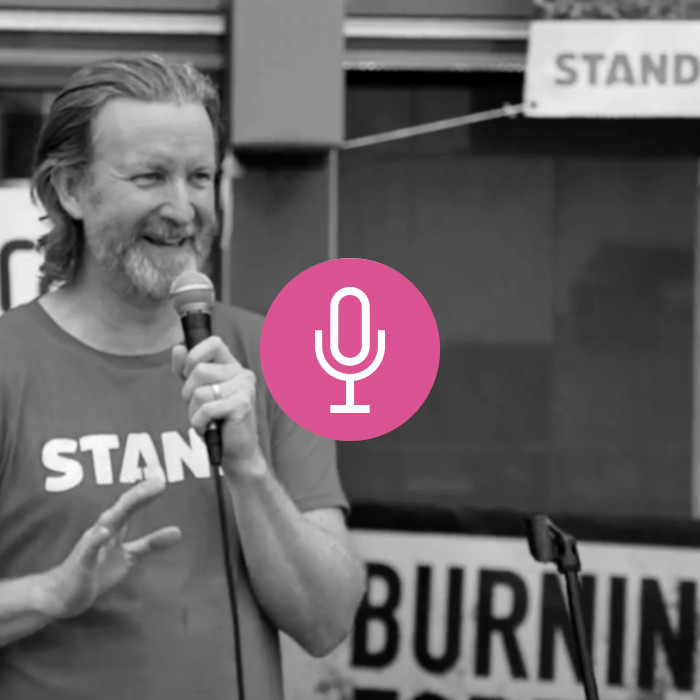In 2019, an Indonesian crew member who had been trafficked on board a Taiwanese fishing vessel was questioning whether he was going to die. He had been locked inside a freezer by the captain of the vessel while still wet from a shower. “It was so cold inside, he did it on purpose. I shouted, ‘Captain, Captain!’, begging him to open the door,” the man, called Supri, told the Environmental Justice Foundation.
During that same trip, Supri was electrocuted with a stun gun meant to be used on fish by another crew member on the captain’s orders. “I was afraid.” Supri said. “Afraid of death. If I die, who will take care of my wife and children?”
Supri’s experience is appalling but not uncommon. The problem is a global one. A 2009 United Nations Inter-Agency Project study revealed, for example, that well over half of trafficked migrant workers aboard Thai fishing vessels reported witnessing a fellow crew member being murdered. Environmental Justice Foundation research has shown that human rights abuses and illegal fishing are intrinsically linked.
The US’ Tariff Act has banned the import of any goods produced using forced labour or compulsory prison labour since 1930, now futher strengthened with the 2021 Uyghur Forced Labor Prevention Act. The EU followed in the US’ footsteps when the European Commission proposed a Forced Labour Regulation in September 2022. European Parliament has yet to publish its position, but is reportedly developing a more ambitious proposal ahead of formal negotiations.
Given the links between forced labour issues and illegal fishing, campaigners hope new rules on forced labour could be an opportunity to build on another EU policy. Established in 2010, the EU’s so-called ‘carding system’ to deter illegal, unreported and unregulated fishing has been hailed as a success by the international community. Yet there are still major gaps when it comes to regulatory measures that specifically target forced labour.
Under the carding system, a country outside of the EU that is not taking sufficient action to stop illegal fishing can be formally issued with a ‘yellow card’ by the European Commission. Yellow card status is public and the country is invited to participate in a structured formal dialogue with the European Commission to address the areas of concern. If it still fails to make progress, then it can be ‘red carded’, which means that all fisheries products from that country are banned from entering the EU market.
The EU issued Thailand with a public yellow card in April 2015. As the world’s second-largest exporter of tinned and processed fish at the time, an EU import ban would have had a severe impact on Thailand’s economy. After years of efforts to improve their monitoring of illegal fishing, Thailand’s yellow card was lifted – demonstrating how effective the carding system can be.

When South Korea was issued a yellow card in November 2013, it took the government under two years to develop new fisheries legislation, improve their inspection regime and upgrade their traceability systems in line with international law. By August 2015, the yellow card was lifted.
By using a system which outlines very real consequences for countries which fail to take action on illegal fishing, the EU has found a way to limit the amount of illegally-caught fish ending up in EU supermarkets, protecting ocean ecosystems and human rights.
This success story should be replicated to stamp out forced labour, at sea and beyond. The need is urgent: according to the International Labour Organization, 27.6 million people were trapped in situations of forced labour in 2021, with 15.1 million of them in the Asia and the Pacific.
Consumer habits have changed. People want to know where their food has come from and who made their clothes. Anyone would be horrified to know that the fish they ate for dinner involved horrific abuse like Supri’s. The European Parliament and the Council must therefore be ambitious as they consider the details of the proposed regulation to prohibit forced labour products. Imports should not cost people their freedom and safety.
The carding system is a pre-existing, functional, and successful process, which could effectively be applied to the new regulation. This would not just be an improvement – it is necessary to ensure the regulation is enforceable. Banning groups of goods with presumed links to forced labour automatically at the border through a red card would free up crucial resources among Member States tasked with investigating individual products on the ground.
The number of people in forced labour is only increasing, with an extra 10 million people exploited between 2016 and 2021. The need to address this issue through powerful, enforced legislation is incredibly urgent. It is crucial that the new Forced Labour Regulation brings a significant reduction in these alarmingly high statistics. For this to happen, the Regulation must lay out clear and impactful consequences for the countries which fail to act on their obligations to address systemic labour abuse within their borders.
EU decisionmakers must remember that while there is a clear moral obligation to fight the power structures that allow forced labour conditions to proliferate, stamping it out is also in the interest of law-abiding EU companies. The gap must be bridged between law-abiding companies in the EU, and those companies that choose to minimise their outlays through the exploitation of their workforce. Law-abiding companies cannot compete with forced labour, and there’s no such thing as a cheap product. Someone is always paying a higher price.
By using a carding system to penalise countries which do not respect their obligations, the EU will be creating a level playing field for law-abiding EU companies, protecting EU jobs and simultaneously moving towards eradicating one of the most serious issues of our time.
You can find more information, reports, and films about illegal, unreported and unregulated fishing on the Environmental Justice Foundation website.
Steve Trent is the Founder and CEO of the Environmental Justice Foundation, a charity that works internationally to inform policy and drive reforms on environmental and human rights issues.
Read more:

- Opinion
- By Catarina Vieira
- 31 May, 2023






